What would you say if a TV crew approached you and wanted to talk about filming a ‘fly on the wall’ style documentary/programme about your organisation?
This morning my Twitter feed has been buzzing with views on this topic. Last night I wrote about a new TV show, The Call Centre, that aired for the first time on BBC Three yesterday. If you missed my article you can read all about it here.
 It got me thinking about this style of programme and what the impact is for companies who take part, what preparation (if any?) employees have before, during and after filming and whether it creates long-term benefit or harm for their reputation – both as individuals and the company. For me, it would also need to be part of a wider plan – what happens once the cameras stop?
It got me thinking about this style of programme and what the impact is for companies who take part, what preparation (if any?) employees have before, during and after filming and whether it creates long-term benefit or harm for their reputation – both as individuals and the company. For me, it would also need to be part of a wider plan – what happens once the cameras stop?
There are a few recent examples that spring to mind, such as Junior Doctors and The Tube. My impression of the organisations involved with both of those programmes stayed positive after the episodes aired.
I think they portrayed a positive image and didn’t appear to suffer as a result. Am interested to know whether you feel the same and am sure there is some sort of measurement around that shows if there was a change in public opinion.
Do you have experience of this? Has your company been filmed? What did you do? What would you do differently in the future? I’d love to know, do feel free to send me a note if you’d like to write a guest article on it.
What would you do?
I was in this position a few years ago when I was Head of Communications at London Overground Rail Operations Limited (LOROL). The BBC wanted to film a new programme, which if I remember rightly, was billed as Mary Portas/Alex Polizzi style.
For readers not familiar with this concept, in separate programmes, they go into organisations in the UK to turn them around, showcasing a before and after format and the stages the presenter has advised to get them to their new world. Be that increased sales, better shop layouts etc.
For us, the idea was that cameras would be ‘everywhere’ – in senior management meetings, employee briefings, depots, messrooms etc. No holds barred, unlimited access to every facet of the organisation.
At that point in time the company was going through major change and preparing for the opening of the East London Line railway. (I spoke about this at the Melcrum Strategic Communication Management summit in 2009). We had a tight schedule of works and deadlines to meet and I didn’t want anything to derail the process and focus – pardon the pun.
The format of the show also didn’t sit well with me – the company didn’t need ‘fixing.’ I knew it was the right decision not to take up the offer and after numerous conversations with Transport for London (TfL) and stakeholders, we collectively, and politely, declined. It may be that a different programme in another format could have worked.
My point is this – I championed and we made a decision based on the facts, taking into account the culture of the organisation, weighing up benefits/risks, and where we were at at that point in time. If we had decided to go ahead, there are a number of things I would put into place.
Not least, preparing employees for the potential impact, what to expect, considered additional/focused media training, outlined social media guidance – the list is endless. But should that be the case? If you enter into a ‘warts and all’ style programme, surely it’s best to be portrayed as is. How would that work for your organisation? I’m not convinced that having no plan in place would be wise.
(On the social media point, it’s been interesting to see The Call Centre employees start to tweet and be proud of being in the programme, I’m sure that will increase as the weeks go on).
What would you do? I Tweeted this today and meant as in a crew coming in. However, I loved the response from Ed Garcez – what a smart idea!
Two questions buzzing through brain: 1) Would you allow fly-on-wall camera in your org? 2) If so, how would you prepare emp for attention?
— Rachel Miller (@AllthingsIC) June 5, 2013
The answers I got back included:
@allthingsic depends wholly on the uses or benefits it would bring to the org and its employees. Most would consider it intrusive at best
— laurastorey (@laurastorey) June 5, 2013
@allthingsic Unfortunately the fly on the wall scenes the viewing public would enjoy would undoubtedly be those management would not. 🙂
— Kim Borrowdale (@KimBorrowdale) June 5, 2013
@allthingsic on a serious note, if you were to assist a client with this I’d discuss parallels with twitter, esp lessons re authenticity.
— Kim Borrowdale (@KimBorrowdale) June 5, 2013
@allthingsic could see value for showing what frontline employees bring to the community. But, really, it’d be more trouble than it’s worth
— Billy Hamilton (@BHamiltonWords) June 5, 2013
@allthingsic Yes. And surely the very idea of a fly-on-the-wall documentary is that it all goes on show. Else, why bother? So no prep.
— themybigtoecompany (@themybigtoeco) June 5, 2013
@wednesday_ic @allthingsic @louisebinns @wadds we had BBC in our hospital 4 Junior Docs programme. Logistical nightmare, overall good result
— Lesley(@tapisdesouris) June 5, 2013
@wednesday_ic @allthingsic @louisebinns @wadds lots of prep: reminding junior docs re professionalism, ensure BBC didn’t intrude on patients
— Lesley(@tapisdesouris) June 5, 2013
@tapisdesouris @wednesday_ic @allthingsic @wadds yes, that was great but can’t imagine how you dealt with access, privacy, etc etc!
— Louise Binns (@louisebinns) June 5, 2013
@louisebinns @tapisdesouris @wednesday_ic @allthingsic @wadds consent consent consent (and tough Geordie nurses!)
— Lesley(@tapisdesouris) June 5, 2013
@louisebinns @tapisdesouris @wednesday_ic @allthingsic or editorial agendas that conflict with the organisation
— Stephen Waddington (@wadds) June 5, 2013
@allthingsic no. The effort to secure buy-in vs the probable payback wouldn’t add up.
— Paul Bennun (@paul_bennun) June 5, 2013
@allthingsic This would be a good place to find answers ico.org.uk/for_organisati… – esp sections of Code on employee monitoring
— FOI Man (@FoIManUK) June 5, 2013
@louisebinns @wadds @allthingsic makes the viewer wonder why they’re spending so much time on self promotion instead of service delivery
— Wendy Jordan (@Wednesday_IC) June 5, 2013
@allthingsic used to have one filming the cafeteria queue, very useful for avoiding rush hour! +ve uses great potential, intrusive cd stifle
— Ed Garcez (@ed_garcez) June 5, 2013
@wadds @allthingsic @wednesday_ic can’t think of an example where organisation has done FOTW and come out well… individuals, yes, but co?
— Louise Binns (@louisebinns) June 5, 2013
@allthingsic depends on your culture also. Whether EEs have ever seen or been part of pieces to camera before or they’re used to seeing them
— Padraic (@padraic_knox) June 5, 2013
@allthingsic @wednesday_ic massive distraction.If you’re going to do it, it needs to be rooted in a comms strategy,not on spec
— Stephen Waddington (@wadds) June 5, 2013
@allthingsic if we wait a few years there’ll be dozens of fly on wall cameras everywhere courtesy of Google Glass other gizmos that follow!
— Rob Miller (@RobMiller31) June 5, 2013
@allthingsic no. From experience, we have so many camera-shy employees, it would be a logistical nightmare
— Wendy Jordan (@Wednesday_IC) June 5, 2013
There are many comments there that strike me. Stephen Waddington’s point around editorial agenda is an important one – what if what is happening in your organisation doesn’t match up with what the TV crew is hoping to film? What would the final show look like and how much ‘control’ – if any – would you have on what was aired?
The Call Centre is being shown on BBC Three over the next few weeks. You can catch last night’s episode via iPlayer if you missed it, and get a sneak preview of upcoming shows.
AB got in touch with me last night as they write an employee magazine for a call centre. I can see from my emails that they have sent me some information, so will have a read through and share their thoughts on the topic with you in another post.
Update: This is now live and you can read about communicating with call centre employees.
Thank you to them and to everyone else who has shared their thoughts on this topic. You’re welcome to Tweet me @AllthingsIC or comment below. Thank you, as ever, for stopping by, Rachel.
Post author: Rachel Miller











A really interesting subject.
When I worked at London Ambulance we agreed to a number of documentaries. For a public sector org like LAS, it’s a key way for comms to build public understanding of the work of the ambulance service.
BUT, it’s very hard work, logistically and also taking the time to get signed agreements from every single person involved (staff and patients). Anything that would potentially undermine our patient confidentiality would have been a disaster.
End results were always good in my experience, but only because of the time spent with the producers before we even agreed to the shoot to ensure the end result would meet our goals.
For every show we agreed to, there were probably another 20 we turned down. Let’s see…. Taking a paramedic and an ambulance to Magaluf?!